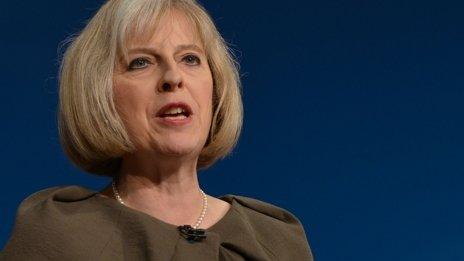UK Conservatives 'row back' in Europe rights battle
- Published
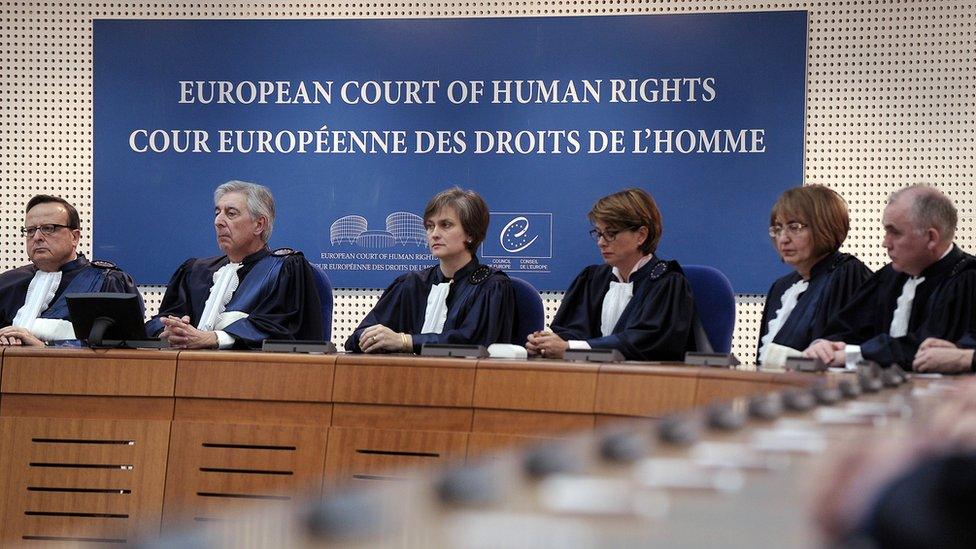
ECHR judges: Some rulings have caused political tensions in the UK
The UK government's threat to withdraw from the European Convention on Human Rights has diminished in the past year, a senior Conservative MP says.
"My impression is there is a lot of rowing back," Dominic Grieve said.
The UK's ruling Conservatives clashed with European judges over a UK ban on prisoners voting and Abu Qatada, a terror suspect who was only deported to Jordan after years of legal wrangling.
Mr Grieve, a former Attorney-General, said the convention, external was a vital tool.
"It's probably the single most effective tool for safeguarding human rights," he said.
Some European Court of Human Rights (ECHR) rulings were mistaken, including the one defending the right of prisoners to vote, he said.
But he warned that "if we quit we'll lose all traction and influence". It would send the wrong signal to countries like Russia and Turkey, whose violations of the convention generate many of the court's cases, he said.
The Strasbourg-based ECHR is not an EU institution. But EU member states have to follow the convention's human rights standards.
"In practical terms you can't be in the EU without being in the convention," Mr Grieve said.
Conservative tensions
A UK withdrawal from the convention could spur the European Court of Justice (ECJ) to widen its own remit, he warned.
ECJ rulings - enforcing EU treaty obligations - affect the UK as an EU member state. And the ECJ "raises far more [legal] difficulties" than the Strasbourg court, Mr Grieve said.
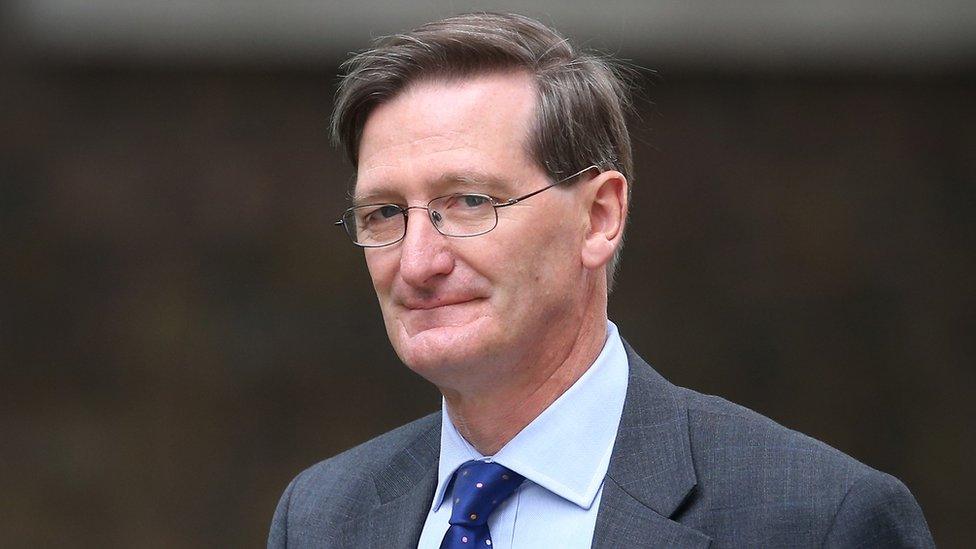
Dominic Grieve now heads a committee of MPs overseeing the security agencies
Mr Grieve served in the UK government in 2010-2014, but disagreed with Prime Minister David Cameron and some other senior colleagues over the ECHR.
He described Mr Cameron as "irritated" by perceived lawyers' interference in the UK government's democratic decision-making.
"I think the PM's personal views on this have a great deal to do with it," he said.
"In part this is displacement activity for EU frustrations," he said, calling Eurosceptic criticisms of European institutions part of a general "crisis in our parliamentary sovereignty".
He was speaking at a London briefing organised by the Association of European Journalists, external.
Key UK role
In 2012 Mr Cameron said the concept of human rights was being "distorted" and even "discredited" by some ECHR decisions.
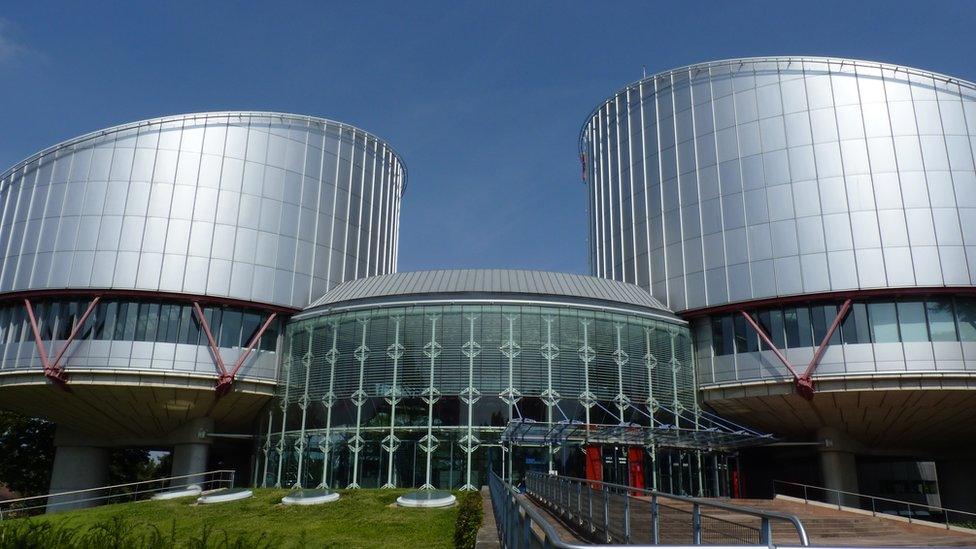
The ECHR acts as guardian of Europe's human rights standards
The Conservatives have called for a British bill of rights to replace the Human Rights Act, which enshrined the convention in UK law in 2000.
But now, Mr Grieve said, the government "wants to tweak the Human Rights Act text, rather than the convention itself".
The UK was instrumental in setting up the court and convention after the gross human rights abuses of World War Two.
The Strasbourg judges' decisions are binding on the 47 states that are in the Council of Europe, the top European human rights watchdog.
However, Mr Grieve said that the ECHR "is not a final court of appeal" - it is still up to national courts to resolve human rights cases.
The ECHR still has a backlog of some 63,000 cases to deal with - though back in 2012 the figure was 150,000, Mr Grieve said. He said the court's capacity was about 2,000 judgements annually.
- Published3 November 2015
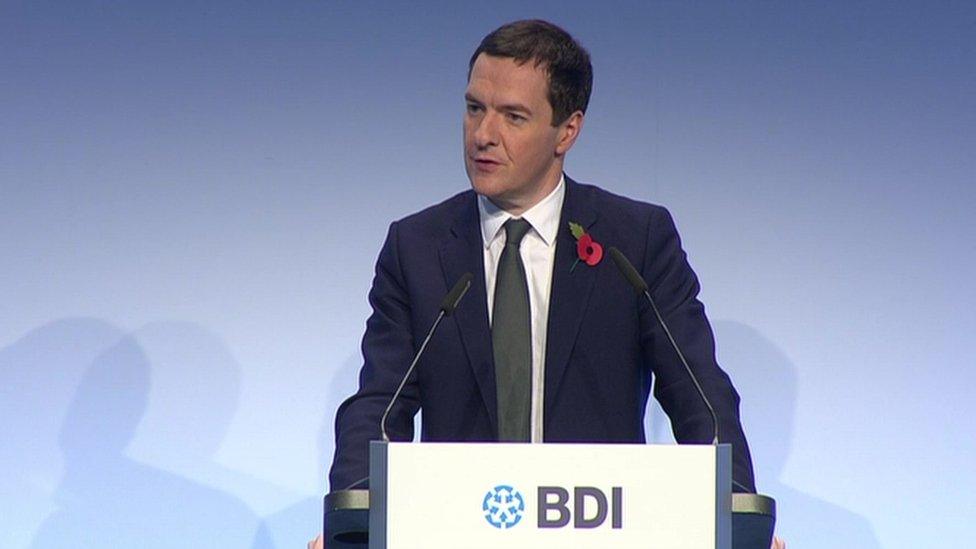
- Published6 October 2015
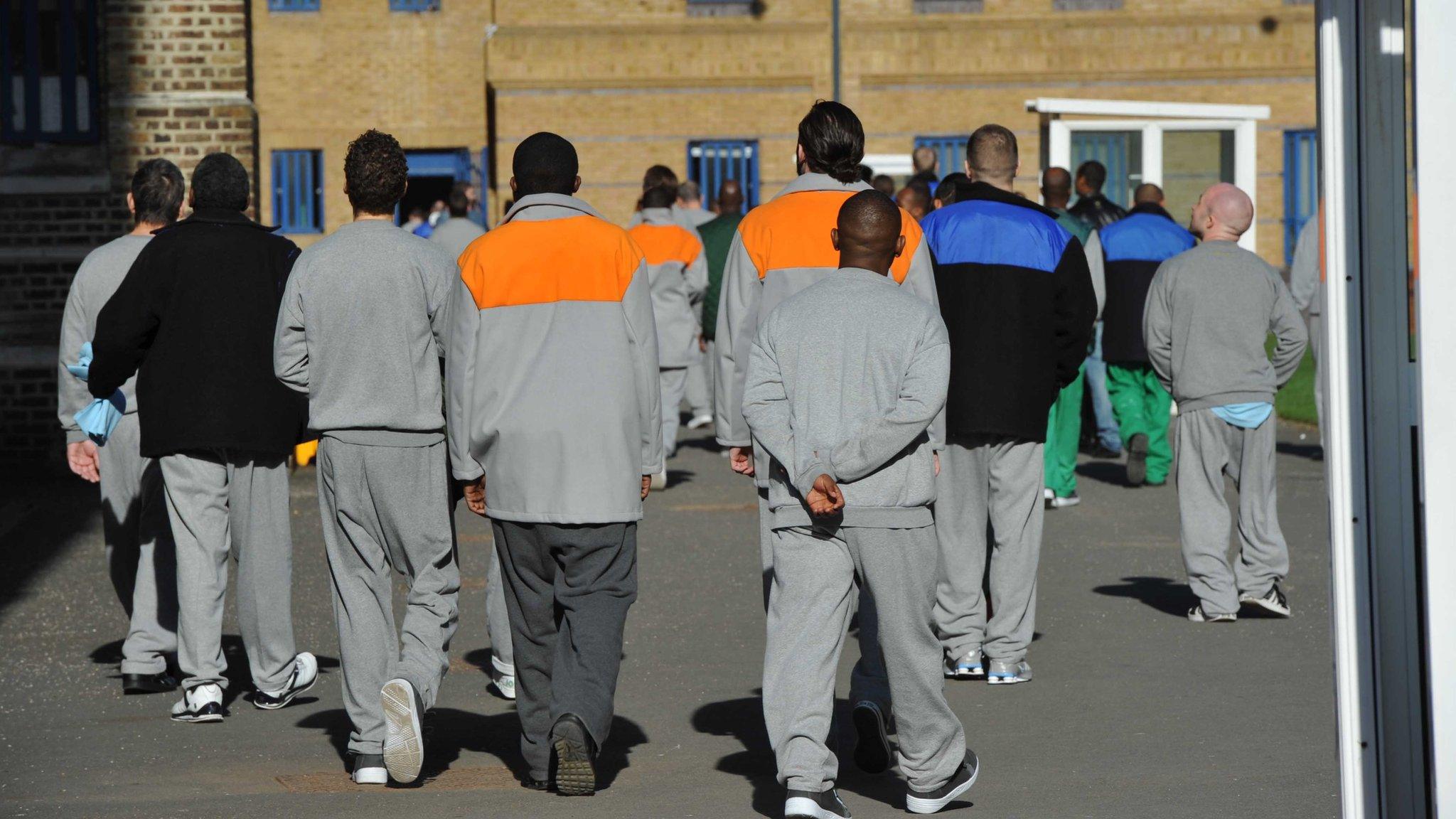
- Published9 March 2013
